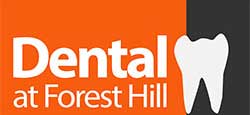Did you know that brushing your teeth may reduce the chances of heart failure? It’s true! Research has shown that good oral hygiene lowers the risk of heart failure. In this blog post, we’ll discuss how brushing your teeth regularly can help prevent heart failure and why it’s so important to take care of your teeth and gums. We’ll also look at the research that has been done to back up this claim. Read on to learn more about the surprising connection between oral hygiene and heart failure.
The link between gum disease and heart disease
Gum disease is a condition that affects the gums and tissues around the teeth, which can lead to pain, swelling, bleeding, and other problems. Recent research has found that there may be a link between gum disease and heart failure. Gum disease has been linked to inflammation, which can damage the blood vessels and increase the risk of developing heart failure.
The exact cause of this link is still under investigation, but researchers believe that the bacteria present in the mouth due to gum disease can travel through the bloodstream and affect other parts of the body, such as the heart. Studies have also suggested that the inflammation caused by gum disease can cause an increased risk of stroke and atherosclerosis (hardening of the arteries).
While more research needs to be done, it appears that gum disease can be a factor in increasing the risk of developing heart disease. Taking good care of your oral hygiene, including regular brushing and flossing, can help reduce this risk.
How brushing your teeth can reduce the risk of heart disease
Brushing your teeth regularly is one of the most important ways to reduce your risk of developing heart disease. Recent research has shown that people with poor oral hygiene are at a higher risk for cardiovascular disease. Poor oral hygiene increases levels of inflammation, which can contribute to plaque build-up in your arteries. By regularly brushing your teeth and flossing, you can help reduce the amount of bacteria in your mouth, which can lower your risk of developing heart disease.
It is important to use the correct toothbrush when brushing your teeth. It should have soft bristles and fit comfortably in your mouth. You should brush twice a day for at least two minutes each time. Be sure to cover all surfaces of your teeth and pay special attention to the gum line, where bacteria can accumulate quickly. Flossing once a day can help remove food particles and bacteria from between your teeth and under the gum line.
In addition to brushing and flossing, it is also important to visit your dentist for regular check-ups. During these appointments, your dentist will be able to look for signs of gum disease, which can increase your risk of developing heart disease. Your dentist may also suggest additional treatments such as mouth rinses and deep cleanings.
By following these simple steps, you can help reduce your risk of developing heart disease. Regular brushing and flossing can help keep your mouth healthy, which can in turn reduce your risk of developing heart disease. Make sure to visit your dentist regularly for check-ups and make sure to use the right toothbrush with soft bristles. Together, these habits can help keep your heart healthy and reduce your risk of heart disease.


